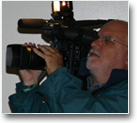 Trent University Students Learn About Residential Schools First-Hand from National Chief Phil FontaineFOR IMMEDIATE RELEASE Thursday, November 20, 2008, Peterborough ine was invited by the Trent University Native Association to discuss the residential school experience in Canada and the current Truth and Reconciliation process set up to address the need for healing. A survivor of Canada’s residential school system himself, Mr. Fontaine described the maltreatment he observed and how it motivated him to fight for change. “I didn’t like what I saw, and how we were treated,” he said, noting how he recalls how the children were regularly referred to as “gros sauvages” in the schools. “I wanted to do something about that, and get someone to apologize and acknowledge the harm done to innocent children.” Mr. Fontaine elucidated the process the AFN undertook to press for more effective compensation for survivors following the 1998 “Statement of Reconciliation” offered by then Indian Affairs minister, and Trent alumna, Jane Stewart, on behalf of the federal government. While the statement established the creation of a $350 million healing fund, he said the claims process was flawed and would take more than half a century to implement. Mr. Fontaine explained how he successfully lobbied to review and restructure the government’s plan, borrowing a great deal from the successful Irish reconciliation experience. This process led to the formal apology offered by the federal government this past June and the establishment of the Truth and Reconciliation Committee. This guest lecture marked Mr. Fontaine’s second visit to Trent University, an institution he described as “outstanding in terms of advancing the interests of our people.” He also acknowledged the University’s innovative approach to teaching, and stated it is an important institution for the study of the Aboriginal experience in Canada. For more information about other Indigenous Studies events at Trent University, please visit the department’s website. -30- For further information, please contact Dr. David Newhouse, chair of Indigenous Studies at Trent University, at (705) 748-1011, ext. 7497, or cell (705) 772-1497. |

































 Indigenous Studies students in first- and second-year courses gained unique insight into Aboriginal history and politics yesterday during a special guest lecture by Assembly of First Nations (AFN) National Chief Phil Fontaine.
Indigenous Studies students in first- and second-year courses gained unique insight into Aboriginal history and politics yesterday during a special guest lecture by Assembly of First Nations (AFN) National Chief Phil Fontaine.